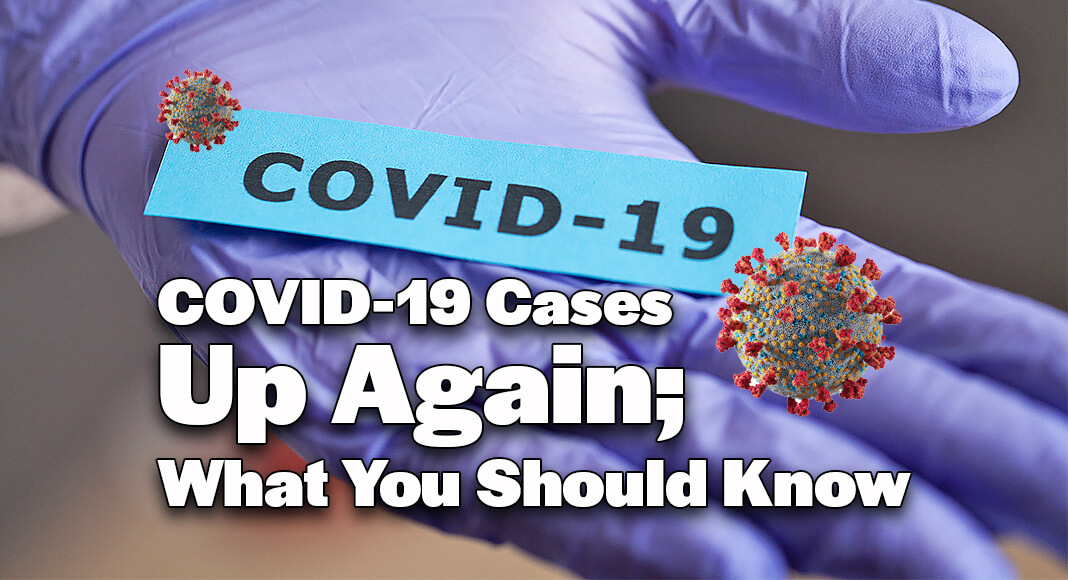
Mega Doctor News
According to two public health measurements, COVID-19 cases are up again, with case numbers in Texas and nearby states leading the way.
Texas is one of the states with the highest level of cases, “very high,” according to the August SARS-CoV-2 (COVID-19) Wastewater Viral Activity monitoring reported by the Centers for Disease Control and Prevention (CDC). The five-state region, including Texas, also ranks among the nation’s highest rate of positive COVID-19 tests in the most recent report. Nearly one in four COVID tests (24.1%) in the region, including Texas, is positive, indicating the person has the virus. This trend is slowly increasing and does not even account for people testing for COVID-19 at home, the results of which are not typically reported to the public health department. However, no totals come close to matching the height of the pandemic.
“The majority of the people we’re seeing with severe illness is the at-risk population: immunocompromised patients like people who have had any organ transplants, people with cancer, or anyone taking medications that weaken their immune system,” said Rama Thyagarajan, MD, a member of the Texas Medical Association Committee on Infectious Diseases. For at-risk individuals, including those age 65 or older, the CDC recommends contacting a physician or health care provider immediately if experiencing COVID-19 symptoms, even if the symptoms are mild.
The Austin infectious diseases physician and assistant professor at The University of Texas at Austin Dell Medical School says the situation presents a simple choice for everyone, regardless of their risk status: Do you want to be inconvenienced by getting sick?
“I don’t fit in any of those groups of high-risk individuals, but I don’t want to get any respiratory infection that is going to put me down for a week or more,” she said. “There is some unpredictability when you get a respiratory infection; we’re presuming that because we’re younger and relatively healthy, we’re only going to get a one-day symptom or a mild case. But you could be sick for a week or ten days … or even end up with long COVID.’”
(The National Academies of Sciences, Engineering, and Medicine recently created a definition of “long COVID” to help with testing and treatment.)
Dr. Thyagarajan said she would choose prevention over the inconvenience of missing work or even a ballgame. She intentionally chooses to take steps to defend herself from getting sick or avoid spreading illness if she is sick, and she hopes others do the same.
To avoid spreading the disease, CDC continues to recommend:
- Stay home until you do not have a fever without using medication to reduce it and your symptoms have improved for at least 24 hours.
- Take additional precautions for five days. Follow up with at-home COVID tests before meeting with vulnerable populations or large groups; stay away from others while sick; follow hygiene best practices like washing hands often and covering coughs and sneezes; improve air circulation, particularly around others; and wear a mask if around others.
Doctors suggest people ask their physician what they recommend to avoid the COVID-19 virus.
The SARS CoV-2 virus mutates, so upticks in cases, including the current dominant strains, can occur despite the fact that many people are vaccinated. Vaccinated individuals are less likely to get severe illness than people who have never had a COVID-19 vaccination or a COVID-19 infection.
Here are additional statistics, including two COVID-19 activity measurements:
- Recent U.S. COVID-19 wastewater positivity (through August 3) was 9%. The southern U.S. region had the second highest positivity readings, followed by the west. Texas’ positivity reading was 13.6%.
- In individuals’ COVID-19 tests, the southern region, including Texas, leads the way with the most positive tests in the nation, at 24.1% test positivity in the most recent week reported (data through August 3).
- The Texas Department of State Health Services report based on individuals’ COVID tests shows that COVID-19 cases increased by 20.3% in the most recent week.
- The number of people sick enough to stay in the hospital is up too, and people continue to die from COVID-19 in increasing numbers as well. However, there are far fewer COVID-associated deaths than the pandemic’s crisis period. More than half (58%) of Texas’ COVID-19 recent deaths were among people ages 80 and older.
TMA is the largest state medical society in the nation, representing more than 57,000 physicians and medical student members. It is located in Austin and has 110 component county medical societies around the state. TMA’s key objective since 1853 is to improve the health of all Texans.








